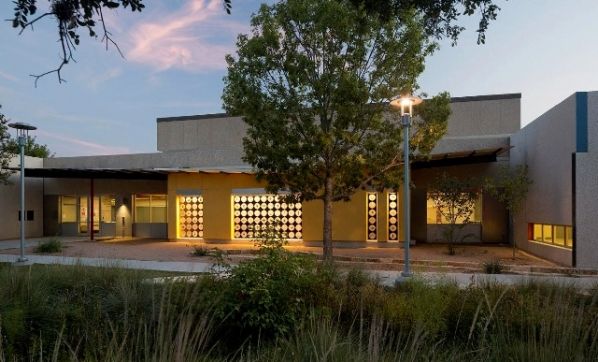City to create disaster-relief hubs
Monday, April 12, 2021 by
Jonathan Lee Spurred into action by Winter Storm Uri, City Council has moved to establish emergency hubs across the city where residents can go during a natural disaster to find food, water and shelter – belatedly acting on plans from two years ago.
The city, working with community groups, will pilot six of these “community resilience hubs” before eventually setting up one in every neighborhood. The hubs will be located at schools, libraries, rec centers and other gathering places, and will be able to maintain power and water during outages.
In a resolution, Council directed City Manager Spencer Cronk to develop plans, a timeline and a budget for the pilot hubs by June.
The city gave similar guidance in its 2019 Climate Emergency Declaration, but plans stalled due to the pandemic. The winter storm showed that the hubs are sorely needed.
“It’s something that we’ve been talking about for years,” Council Member Greg Casar said on Thursday, “and now I think more than ever, we can very clearly see why these resiliency hubs are so critical.”
Though several impromptu hubs were set up during the storm, the lack of planning left them disorganized and short on supplies. Some even succumbed to water and power outages.
“I worried about communicating to too many people that these hubs were available,” Casar added, “because we didn’t always know if we had enough people or supplies.”
Casar shared how his staff used their connections in city government to find port-a-potties for one warming center that lost water. “I appreciate them stepping up and doing that,” Casar said, “but it shouldn’t be City Council aides making sure that there are bathroom facilities at our resilience hubs.”
Council members apologized for the city’s lack of preparation. “We really dropped the ball,” Council Member Pio Renteria acknowledged.
“It is not okay that we are letting this type of policy direction go by without actual, tangible movement on it,” said Council Member Vanessa Fuentes – who was not on the dais in 2019. “Lives are at stake.”
Council Member Alison Alter told the city manager to explain to Council by May how the 2019 plans could have made a difference during Uri.
Once the hubs are established, they will serve communities not only during natural disasters but during non-emergencies. The city envisions the hubs as community spaces, similar to the roles schools, churches and libraries already play, Council Member Kathie Tovo explained. “This is really just enhancing what is already a wonderful asset that we have here.” Tovo also emphasized that planning for the hubs “has to be community driven.”
“The time is really right, while all of us have that emergency in our mind,” she said, “to really look to those … facilities and see how we can equip them to have the kinds of resources in place that we need.”
The Austin Monitor’s work is made possible by donations from the community. Though our reporting covers donors from time to time, we are careful to keep business and editorial efforts separate while maintaining transparency. A complete list of donors is available here, and our code of ethics is explained here.
You're a community leader
And we’re honored you look to us for serious, in-depth news. You know a strong community needs local and dedicated watchdog reporting. We’re here for you and that won’t change. Now will you take the powerful next step and support our nonprofit news organization?









